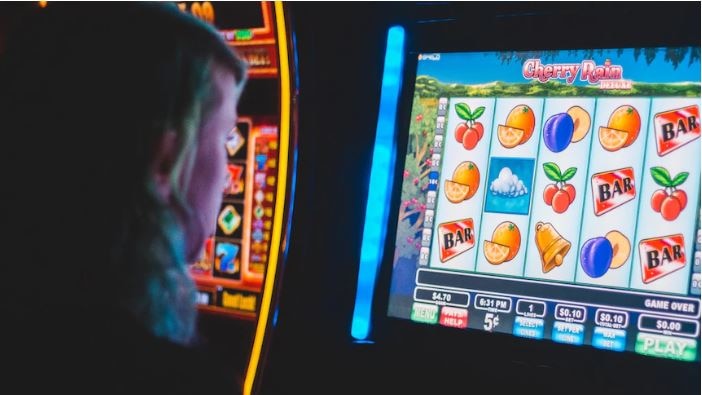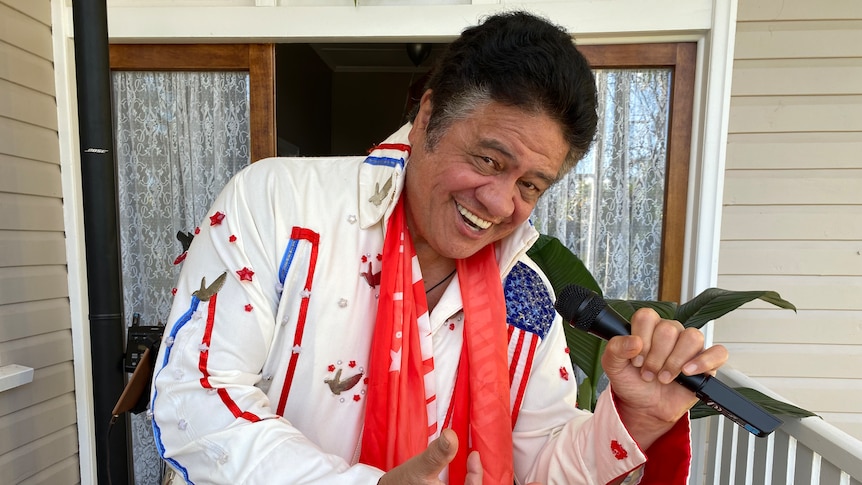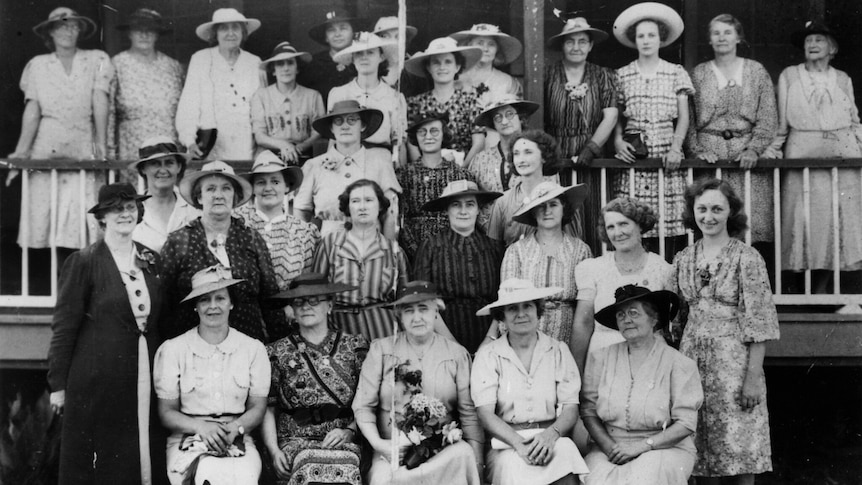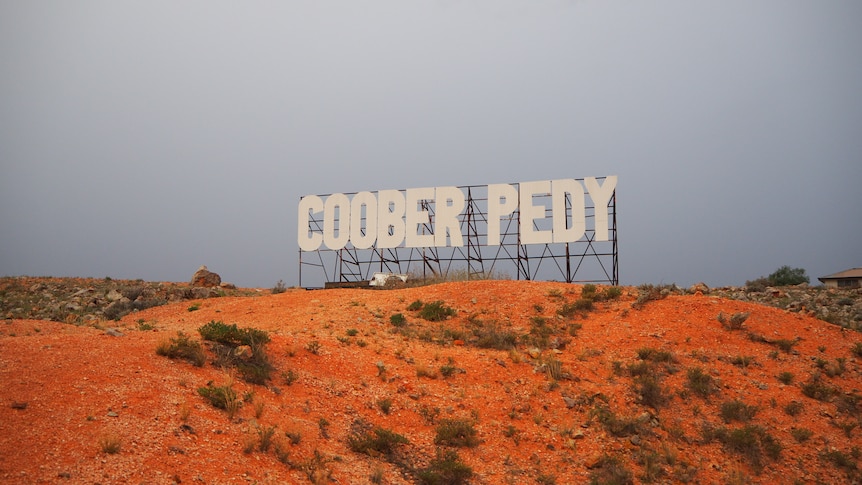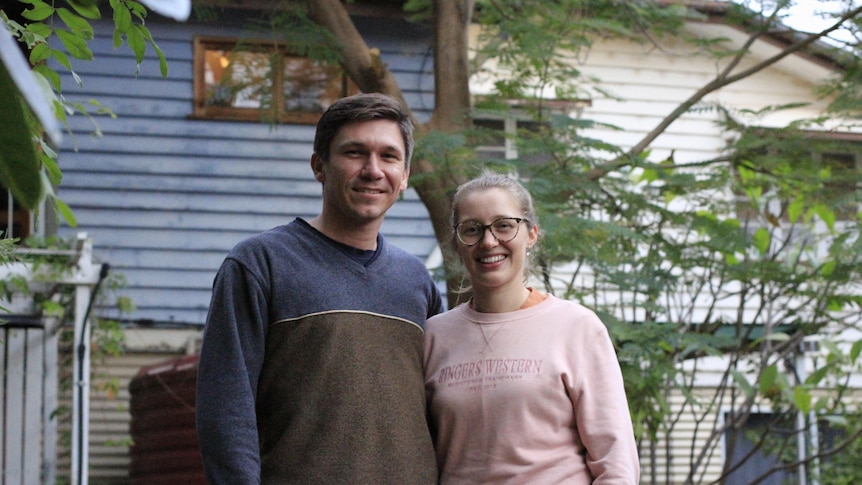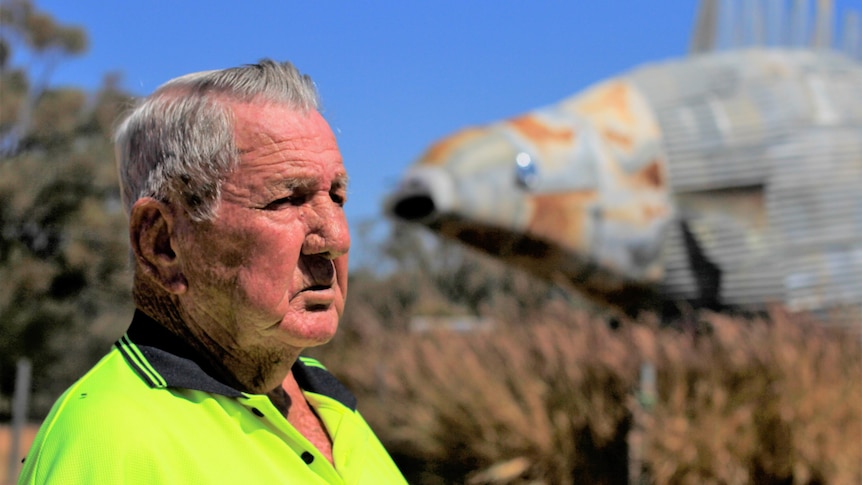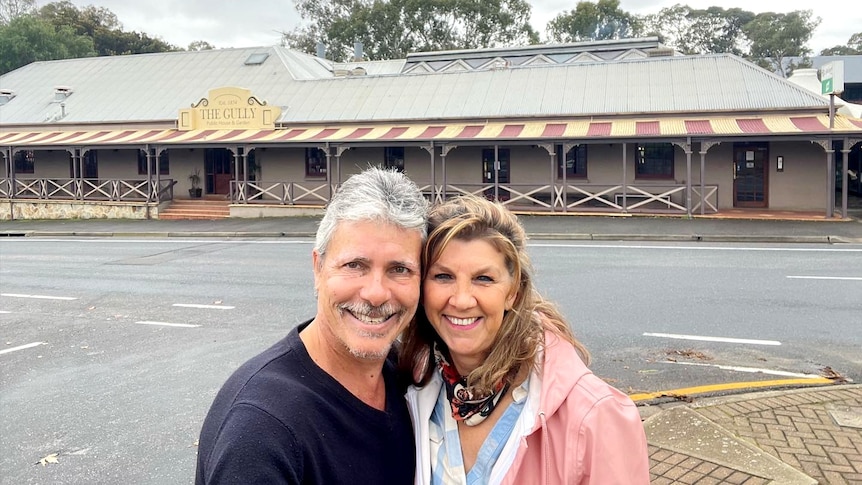In the backroom of an outback pub, a group of about 100 concerned locals have gathered to perform a rendition of the smash hit Blow Up the Pokies by The Whitlams.
Key points:
- Residents in Alice Springs are protesting a plan for dozens of new poker machines to be installed in pubs and hotels
- Iris Capital has applied to install 60 pokies weeks after buying up many of the town’s hospitality venues
- There are concerns about the gambling and liquor industry’s ability to influence government decision-making
Assisted by the local choir, community members are making their voices heard over plans to roll out dozens of new poker machines in pubs and hotels across Alice Springs.
“I’ve turned up because… I work at the hospital here in Alice Springs and I see every day how many problems our people have,” one attendee said.
“We don’t need any more gambling in our community.”
Hospitality giant Iris Capital has applications in for 60 new pokies to be installed in four of its newly purchased Alice Springs venues, including several where there currently are none.
The Sydney-based company has already expanded its gaming machine empire, having added at least 115 new pokies at Lasseter’s Casino since purchasing the Alice Springs venue for $105 million last October.
Locals have taken up the fight, expressing concerns that adding more pokies will disproportionately affect some of the region’s most vulnerable residents.
A ‘perfect storm’
Anti-pokies campaigners have said the timing of the applications makes for the “perfect storm”.
In July, long-term alcohol bans introduced during the NT intervention in dozens of remote communities and town camps surrounding Alice Springs came to an end.
Frontline organisations, including the Central Australian Aboriginal Congress and the Royal Australasian College of Surgeons, have said they have seen a spike in alcohol-related serious injuries in the weeks that have followed.
Meanwhile, the use of the cashless debit card, which limits welfare payments being spent on alcohol and gambling, is set to be scrapped by the Labor government.
Campaigner and former gambling addict Roxanne Highfold said there were already too many machines in Alice Springs, a town which grapples with some of the highest rates of poverty, alcohol abuse and violence in the nation.
“To be honest, I worry about my people using the poker machines and falling even into more debt, and also what the long-term impact that will have on the community,” she said.
“I would hate to see Alice Springs get to a point that every single pub has got poker machines, and that it takes away the recreational activities from the pubs, where families can go to enjoy a meal or enjoy other recreational activities.”
The decision on whether to approve Iris Capital’s applications rests with the NT’s Director of Gaming Machines, who, the government says, operates at an arm’s length from cabinet.
Gaming Minister Chansey Paech has been accused of “sitting on the fence” over the pokies plan, and has refused to comment directly on whether he has held concerns about the potential expansion.
‘Cashed up’ companies in the gambling industry
There have long been concerns about the gambling industry’s ability to influence government decision-making through well-documented tactics such as political donations and lobbying.
Researcher Tony Brown has been providing legal assistance to members of the Casula community in south-west Sydney, where Iris Capital is in court making a similar push to expand its pokies empire despite pushback.
“We see these organizations moving in and their priority is unmistakably in terms of maximizing their profits, but we see very little government and legislative attention to the harm and consequences associated with the proliferation of pokies and alcohol outlets,” said Dr Brown.
Dr Brown, who has recently completed a PhD examining the regulation of alcohol and pokies across the country, said companies operating in the industry were typically powerful and politically connected, and tended to target low socio-economic communities.
“What we’re finding is that these cashed up, opportunistic corporations are really taking advantage of these desperate communities,” he said.
“They really are being made ripe for plucking.”
Dr Brown said large gambling and liquor companies had over the decades “hijacked” law-making and regulatory processes across much of the country, flying in the face of politicians’ responsibility to work in the public interest.
“The role of government is to protect communities from outside threats and influences” he said.
“What we’re finding instead is that those industries effectively captured our democratically elected politicians and those institutions that they control.”
Across the Northern Territory, there is a cap of 1,699 pokies in operation for licensed venues, as well as caps for each venue.
However, no such caps exist in the NT’s two licensed casinos: Lasseters and Mindil Beach Casino Resort in Darwin.
As the overall cap edges closer to its limit, there has been a spike in the number of gaming machine applications made to Licensing NT from just one in the 2021–22 financial year to eight since July (four of which are from Iris Capital).
As a nation, Australia has more pokies per person outside of casinos than anywhere else in the world, and holds the title as the country with the world’s worst average gambling losses at about $1,000 per adult each year.
Investment in the Territory ‘welcomed’
The NT’s hospitality industry peak body has thrown its support behind Iris Capital’s applications, arguing the company was being unfairly targeted.
“We welcome investment in food, beverage, accommodation, upgrades right across the Territory, and yes, gaming services is part of that,” said Alex Bruce, the chief executive of Hospitality NT.
“There’s a lot of problem gambling that goes on in unregulated community card game houses, in the streets, in the public parks.
“People can sit at home and bet online and lose their house – we never see any focus on that, it’s always on the pub with the light on.”
Mr Bruce said the Territory had some of the best gambling regulations, pointing to a number of recent changes to the NT government’s Code of Practice for Responsible Gambling, including a mandatory online course for staff working in the industry.
Iris Capital did not respond directly to questions about its business strategy or the potential impact of its plan for Alice Springs, but said in a statement the company sought to use its newly purchased venues to their full “capacity”.
“Iris will look to spend significant monies to reposition and activate the venues to operate to their capacity in all areas. This includes gaming,” the spokesperson said.
.
